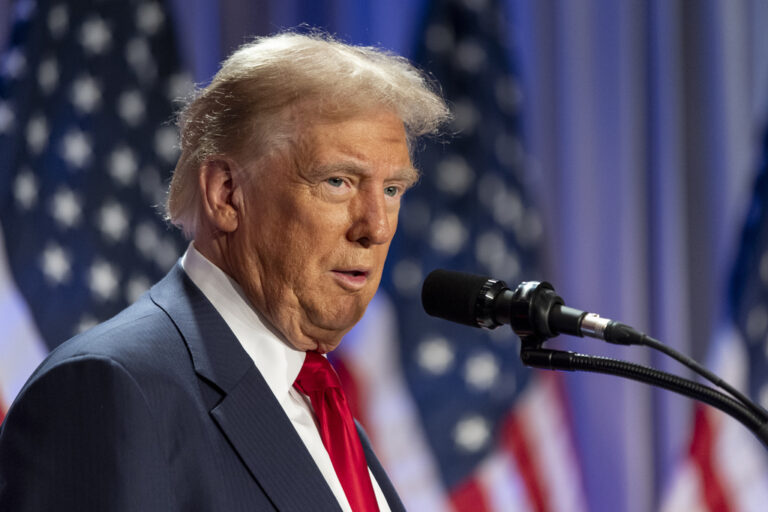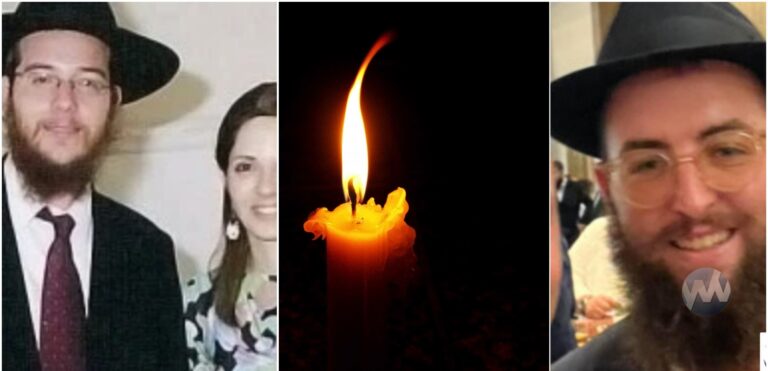 By Rabbi Yair Hoffman for the Five Towns Jewish Times
By Rabbi Yair Hoffman for the Five Towns Jewish Times
The election of President Trump, and the presence of a Shomer Shabbos daughter and son-in-law, has sparked new interest in the blessing that is recited upon kings. Indeed, the issue even made it into the Annual Five Towns Brachos contest. Does we recite a blessing over President Trump? Is it just kings who have life or death in their hands, or is it even U.S. presidents?
The Shulchan Aruch (OC 324:8) rules that on Jewish kings one recites the blessing, Boruch atta Hashem, elokainu melech ha’olam – sh’chalak mikvodo lirayav. On kings of the nations of the world one recites the blessing, “boruch sh’nasan mikvodo l’basar vadam.” This is based upon a passage in Brachos 58a. The blessing, it seems, is recited with Shaim uMalchus – mentioning the Name of G-d as well as mentioning His Kingship over the wolrd.
HOW OFTEN
But how often is this blessing recited? What if you happen to be Jared and Ivanka? Do you say it every day? It would seem that the blessing is only made once in every thirty days, according to a quote of the Raavad found in the Orchos Chaim. It is also interesting to note that in the Sefer Chasidim (#950) there is a limitation placed on this Mitzvah. It seems that if one never saw the king (or president) then one should try to go see him. If, however, he had already seen him, the Sefer Chassidim writes, then he should not be mevatel from his Torah studies.
IF IVANKA RUNS..
What happens if, in the future, Ivanka Kushner, the president’s popular daughter, chooses to run and wins? Which version of the blessing would be recited – the first version for Jewish kings or the second version for kings of the nations? The Sho’el v’nishal (OC Vol. I #73) rules that if that person were to follow the ways of the Torah than the first version is recited. Otherwise it would be the second version.
PRESIDENT TRUMP IN PLAIN CLOTHES
What would be the halacha if the president were to forgo high-end clothing and were to try and go incognito – such as in overalls? The Kaf haChaim 324:33 cites numerous Poskim who state that the blessing was only enacted when the physical manifestations of that Kavod are present. The Halacha Brurah (Vol. XI p. 305), Rav Ovadiah Yosef’s son, rules that one does not recite the blessing in such a situation with Shaim uMalchus – but just the words themselves. Ashkenazic Poskim do not cite this caveat. One should check with one’s own Rav or Posaik.
DOES HE HAVE TO SEE HIM?
The Debreciner Rav rules that if one saw the president on television the blessing is not said. Indeed, one does not even say it without shaim uMalchus.
Rav Dovid Yosef write that one does not actually have to witness the president or king. Even if one was just able to see his entourage and knew that he was there, that would be sufficient. It is for this reason that even a blind person may recite this blessing when he feels that the president is present. If he does not actually feel it, but is merely told that the president is here, then he does not recite the blessing (p. 308).
ARE PRESIDENTS LIKE KINGS?
Rav Ovadia Yosef zt”l ruled (Yechave Daas 2:28) that the blessing is recited as long as the person in charge can either execute or pardon someone from exection. He cites the Radvaz (Vol. I #296) as well as the Orchos Chaim (Hilchos Brachos Siman 49) to this effect.
Rav Dovid Yosef Shlita in his Halacha Brurah (Vol. XI page 306) writes that one recites the blessing with Shaim UMalchus even on a democratically elected leader of a limited term. This is true only as long as his pardoning cannot be overruled.
What about a President who doesn’t wear royal clothing? Rav Ovadia Yosef zt”l in his Yabia Omer 8:22:25) writes that when the President Richard Nixon flew to Israel the blessing was recited without Shaim u’Malchus. It seems, however, that this concept has evolved a bit, taking into account that in Western countries, kings and leaders just don’t wear royal clothing anymore. Thus, Rav Dovid Yosef rules that even if the king is not wearing specialized clothing but is wearing respectable clothing and is surrounded by other significant people, then a blessing is made with Shaim uMalchus.
Rav Vosner is Shaivet haLevi I #35 rules that shaim uMalcus is recited on the president. The Debreciner Rav ruled (Be’er Moshe Vol. II #9) that shaim uMalchus is not recited. Rav Moshe Shternbuch (Teshuvos V’hanhagos Vol. II #139 rules that the temporary nature of the presidency is what would disqualify it from the shaim uMalchus aspect of the blessing.
THE REASONS
The Gemorah explains that one should actually make an effort to see kings in order to be able to distinguish between Jewish and non-Jewish kings. Rashi explains that the reference is to Melech haMashiach, when he arrives. Seemingly, the reason is so that we can better appreciate Moshiach – when he finally arrives, and the Chessed that hashem has done for us.
The Rambam seems to imply a different reason. The Gemorah (Megillah 15b) tells us that Esther was punished when she went to see Achashveirosh and she reached the outer hall. The Shechina was no longer with her and she noticed the deficit and recited the verse in Tehillim (22), “Hashem, Hashem, why have You abandoned me?” One of the questions of self-examination that she asked herself was that perhaps she had incorrectly referred to Achashveirosh disparagingly. She then immediately corrected herself. The Rambam explains in his commentary to Esther (5:1) that Hashem had given of His Kavod to flesh and blood and it was wrong of her to speak of him in a pejorative manner. It seems from this Rambam, the reason for the bracha is to take note of the honor which Hashem endowed a human being.
TO AMALEK
It is interesting to note that when Kaiser Wilhelm came to Yerushalayim on a Shabbos, the 13th of Cheshvan in 5659, they told Rav Yoseph Chaim Sonnenfeld zt”l of his imminent arrival. He was to arrive at 3:00 PM. Yet the Rav did not wish to greet him. They inquired as to why not. He responded that he had a tradition from the Vilna Gaon that the German people were safaik Amalek and that it is forbidden to recite the blessing of, “boruch shenasan mikvodo l’basar vadam.” One of my Rebbeim, a holocaust survivor, had related this incident to me some thirty five years ago and wondered, “In light of the holocaust, it may no longer be a safaik.”
The author can be reached at [email protected]
The author’s books can be purchased at Amazon.com











12 Responses
Rav Yoseph Chaim Sonnenfeld
would give a remarkable eulogy on Kaiser Franz Joseph who was also german
Wow the Rabbi is going so deep in this Halochos Powerful
In the other hand people curse or say terrible things to the PRESIDENT we are Jewish we not supposed to copy the Goyims the liberals
Where is the דרך ארץ
Where is the קידוש השם
Lets all say
“boruch shenasan mikvodo l’basar vadam.”
The President of the USA indeed has the power to pardon anyone, even a murderer, and that pardon cannot be overturned.
However, he has ZERO power to condemn someone to death. So what is the hava ameena that the brocho should be said with Sheim uMalchus?
The appropriate bracha for any president is שלא עשני גוי.
1. The Roman “emperors” were technically elected, and would have probably had you arrested or worse if you dared to suggest they were “kings”. This includes such as Augustus, Hadrian, Marcus Aurelius, etc. We generally saw them as “kings”, even if the Romans insisted they were still living in a republic with elected leaders. Note that the standard of the Romans said “SPQR” for the “Senate and People of Rome”, unlike, for example, the British who refer to their ships as “HMS”, “His/Her majesty’s ship”.
2. The American president can only pardon someone of federal offenses. In most states the governor can pardon for state offenses.
3. In American political thought, the “sovereign” is the “people”. Note how our constitution begins “We the people”, and out laws begin by stating the Congress is enacting law (in Britian, laws beging by a statement that the King/Queen is enacting law, albeit with the advice of the parliament). Arguably, the American president is the “first magistrate” at best, and perhaps nothing more than the head of the civil and military services – subject to the will of the people and the rule of law, analagous to a “prime minister” in other countries (and no one holds that a prime minister gets the kingly bracha).
I guess “Oy, he’s so wrong” will not fill the bill.
As usual, a thoughtful and elegant exposition from Rav Hoffman. However, in a broader context, and putting aside our political divisions, at the end we must all hope for the success of our President since that will ultimately determine our national well being in today’s world. For yidden however, perhaps the halachically correct baracha can be brought down from studying that great source of spiritual insight, “Fiddler on the Roof” where we are instructed that when one sees the our head-of-state we must offer the following; “May the Ebeshter bless and keep the President FAR away from us”…..
Besides making a bracha for the current President of America, one should give an extra thanks to Hashem daily for giving us a ruler a true ohev yisroel after 8 years of an anti-Semitic lowlife.
#4 A President does not necessarily have to be a Goy. Wasn’t Joe Lieberman running for President about 13 years ago?
The proper brocha for trump is ברוך שפטרנו מנוול זה and have pence bring sanity back to
Arye! We know who you are! Quiet!
Re comment 8: The US president is not a ruler. He is a constitutional officer of a democratic republic whose authority is laid out in a constitution.
As for “lowlife,” I do not recall Obama’s boasting about grabbing women.
#11: We have generally focused on whether a rule/leader is “good for the Jews” (Trump probably, especially if you are frum – Obama, definitely not, unless you needed to go on Medicaid), rather than on their personal lives. For example, we hated Nicolas II of Russia even though he lived a wonderful personal life (loyal to his family, no mistress, etc., but encouraged and supported pogroms), but liked Richard I of England (who was gay, and fairly amoral in personal matters – but opposed the very anti-Semitic nobility).